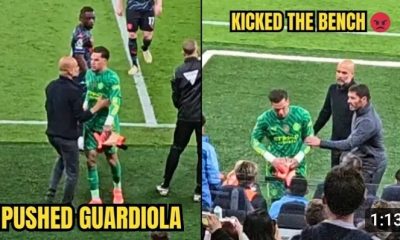Joan Baez
The Folk Americana Roots Hall of Fame Inductees: Solo Living Artist Joan Baez.
The Boch Center in Boston hosted the induction of ten Solo Living Artists into the Folk Americana Roots Hall of Fame (FARHOF) on the weekend of April 19 and 20, 2024. Willie Nelson, Mavis Staples, Taj Mahal, Emmylou Harris, James Taylor, Bonnie Raitt, Bob Dylan, Joan Baez, and Ramblin’ Jack Elliot are the 10 honorees.
On January 9, 1941, Joan Baez was born on Staten Island, New York, to a Scottish acting teacher and a Mexican-American scientist father. When Joan was in her early teens, the family—which also included two other daughters—moved about a lot before settling in Southern California. Despite all the transfers, she was still able to obtain some formal music training and picked up the ability to accompany herself on the guitar.
In 1960, she released Joan Baez, her debut solo album of classic folk tunes. Her distinct soprano voice was deemed “too pretty” by some observers. For others, it flowed simply and “with wondrous ease.” In any case, her youth and activism were appropriate for the period. She quickly rose to prominence in the early 1960s folk revival movement.
The simultaneous induction of Bob Dylan and Joan Baez into the FARHOF is appropriate. Even though Dylan’s skill probably would have made him famous and well-known, Joan had a crucial role in helping to establish his career. Dylan’s “Don’t Think Twice It’s Alright” and “With God On Our Side” were featured on her fourth album, which served as an introduction to his music for her audience.
The two were in a relationship from 1963 to 1965 and are said to have been virtually inseparable. The relationship was particularly hard on Joan. She told Amanda Petrusich of New Yorker last year, “He needed a mother, he needed someone to give him a bath, he needed someone to sing his songs.” (Artifacts, September 25, 2023)
The two reconciled in 1975 and sang duets in Dylan’s Rolling Thunder Revue. It was in that same year Joan released her acclaimed album, Diamonds And Rust. The title song was written about her relationship with Dylan. If it sounds bittersweet perhaps putting it out there in song helped her find peace with the way their relationship ended.
Dylan notwithstanding, it was Joan’s rendition of “We Shall Overcome” that put her not only in the forefront of the folk revival of the early 1960s but of the Civil Rights movement as well. It was a time when it was not trendy and certainly not safe to sing about Civil Rights and individual freedom. Yet, Joan’s life’s work was even then reflected in her music.
She could be found singing from flatbed trucks in Mississippi and at the Lincoln Memorial during Rev. Dr. Martin Luther King Jr.’s March on Washington in 1963. She sang at the birth of the Free Speech movement at UC Berkeley, and co-founded the Institute For The Study Of Nonviolence near her home in Carmel Valley. She sang in fields alongside Cesar Chavez and migrant farm workers striking for fair wages, and opposed capital punishment during a Christmas vigil at San Quentin.
For some, her singing “We Shall Overcome” at such a young age may have seemed naïve or youthful ignorance. However, in October 2023 Joan told the CBS Sunday Morning audience she was smart rather than hopeful. “I was smart enough to know that ‘we shall overcome’ did not mean probably in this lifetime,” she said. “So I was dug in. I knew this was going to be a long battle.
She is still fighting today, not just in the Civil Rights movement but also in other areas. She is in favor of environmental issues, LGBT rights, the repeal of the death penalty, Amnesty International, and several anti-war demonstrations.

-

 Manchester City9 months ago
Manchester City9 months agoCongratulations Phil Foden side chick just gave birth to a baby boy,open to hear Phil Foden speech from conference
-

 Manchester City8 months ago
Manchester City8 months agoGood New: Erling Haaland UK side chick just delivered a baby boy today, Haaland named the child after Pep Guardiola 🙄
-

 Manchester City8 months ago
Manchester City8 months agoReport: Manchester City attacking midfielder De Bruyne ‘desperate’ to join English football giants
-

 Manchester City9 months ago
Manchester City9 months agoCongratulations: Erling Haaland become a father as side chick delivered baby boy earlier today by BBC..
-

 Manchester City7 months ago
Manchester City7 months agoFootage of Ederson’s Angry Reaction to Pep Guardiola made Phil Foden to send him a warning massage,Pep was shocked when he saw what Phil wrote.
-

 Manchester City6 months ago
Manchester City6 months ago“Everyone at Man City wants me out, even the fans want me out
-

 Uncategorized6 months ago
Uncategorized6 months agoSky Sport Confirmed Tottenham has signed Manchester City best player€66m rated,Ange Postecoglou smile
-

 Manchester City8 months ago
Manchester City8 months agoCongratulations to Phil Foden as he bought a new private jet.